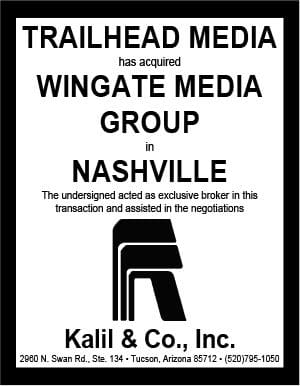
After the 2020 Year of Covid, followed by the Insurance at the Capital and Winter Storm Uri in 2021, 2022 turned out to be a pretty good year for the billboard industry, from a business and legal standpoint. For most of the year, operators and investors enjoyed robust acquisitions of billboard assets. According to my broker friends and clients, Max Drachman, Marty Williamson, Mike Morrill, and Paul Wright, record transactions were fueled by plentiful financing, low interest rates, high advertising revenue, and generous prices. The year also saw the Supreme Court’s decision in Reagan vs Austin, holding that the permission afforded in the Austin Sign Code for digital illumination for on-premise signs, while denied for off-premise, did not rise to prohibited content based regulation violating the First Amendment. OAAA and some of the major operators submitted briefs supporting Austin’s position in the case, and the decision has been largely heralded as providing guidance and certainty in sign regulation, and avoiding scrutiny and amendment of the Federal Highway Beautification Act. Chris Cowlbeck, Becky Smith, and the rest of the crew at IBO should also be congratulated for returning to in-person conferences this year, with record attendance in Kansas City and Charlotte. And, if you’ll indulge me on a personal note, the Houston Astros won the World Series, my Kansas Jayhawks won the Men’s Basketball Tournament (and the football team won six games and went to the Liberty Bowl, which some would argue is a more remarkable achievement), and my son and law partner Chris got married in Santa Rosa (as kindly commemorated by Tom Jackson on Veale’s digital billboard and reported by Billboard Insider in its November 7 edition).
The legal predictions for 2023 include, unfortunately but inevitably, less billboard acquisition activity. The highest inflation in decades, prompting the Federal Reserve to raise interest rates several times throughout the year, have combined to cool consumer spending in general, and billboard sales will suffer as well. There will also be less litigation with cities and states over alleged content based constitutionally suspect sign regulations. The Supreme Court’s decision in Reagan vs Austin has effectively eliminated the strategy of some operators and their attorneys to challenge the constitutionality of supposedly vulnerable sign codes, and to secure new locations in settlements of litigation. The case also means that State legislatures will no longer be amending their State Highway Beautification Acts, like Texas, Kentucky, and other states did during the last few years to avoid legal challenges and potential invalidation of their content based sign regulations. It also follows from all of these predictions that there will be less work for lawyers.
On a brighter note, the IBO Spring Conference from April 19-21 will be in my hometown of Houston this year. My partners, Mike Falick and Chris Rothfelder, and I are looking forward to being good ambassadors, and to working with Chris, Becky, and the rest of the folks at IBO to make this best conference ever!
Happy New Year, Everybody!
[wpforms id=”9787″]
Paid Advertisement

















